[Welcome to Everett Pompeii of Clerical.AI! We are excited to feature this as our most recent highlighted project from the field of legal services.]
Where should you refer someone for legal help?
The answer given is usually one of two extremes: free legal aid or the local bar association.
Free legal aid is a fantastic resource. However, it is no panacea. Income eligibility levels are usually closely tied to the federal poverty level, and even for those who qualify, only 14% receive adequate help1.
Some local bar associations do offer “free consultations”, which is nice. Past that though, it tends to be business as usual, a $10,000+ retainer for a $250+/hour attorney who can’t say for sure how much it will all cost in the end.
Considering that a majority of Americans, 59% to be exact, can’t afford an unexpected $1,000 expense without going into debt, most are left to go it alone2. For some case types, this leads to upwards of 90% of litigants being self-represented3.
There are other options out there, from do-it-yourself apps like Legalzoom to flat rate and limited scope attorneys. However, in the vast ocean of the internet, these resources can be difficult if not impossible to find, and even if you do find them it can be difficult to compare prices. A newly launched platform, Instant Attorney, is aiming to make the problem of finding affordable legal services a whole lot easier. Instant Attorney, which went into open beta last month, is a collaborative legal resource knowledge base built on the Human Services Data Specification (HSDS). There are two sides to Instant Attorney: the public facing side (for those seeking legal help) and the Partner facing side (for those offering legal help).
Public Facing
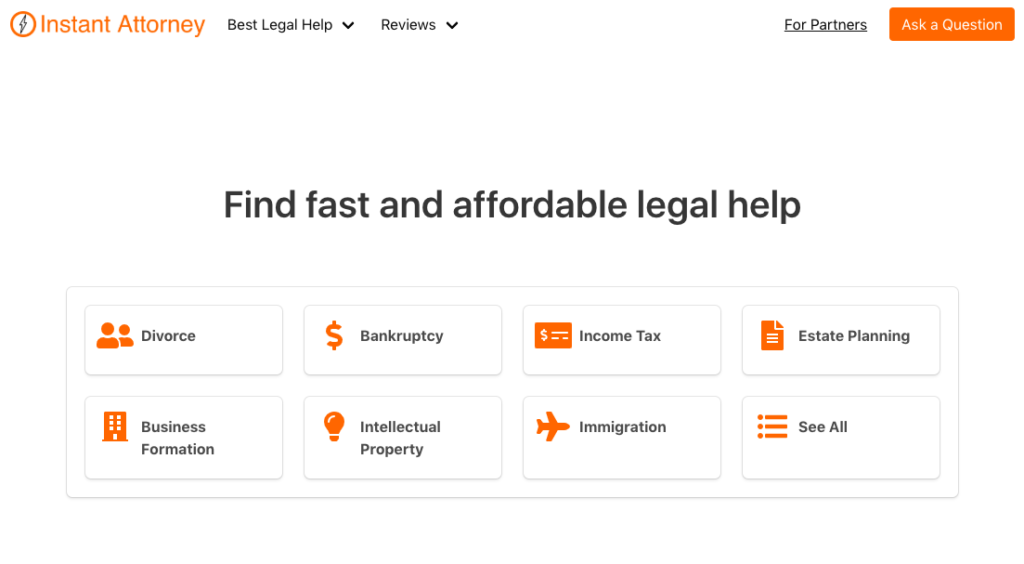
The pubic facing side of Instant Attorney allows anyone on the internet to find legal resources by both type of legal issue and location. We’re using an early version of the National Subject Matter Index version 2 (NSMI v2), currently under development by Margaret Hagan at Stanford’s Legal Design Lab for our legal issues taxonomy. As soon as the NSMI v2 is complete, we’ll do the full launch of Instant Attorney. Then we’ll continue the process of cataloguing thousands of free and affordable legal resources.
Our ultimate goal is to list all Price Forward legal resources. Being Price Forward means that listings are as upfront as possible with potential clients about their cost: whether they’re free to use, have a set price, or are a subscription service. By ensuring a Price Forward listing model, we believe we can empower our users to find the resource that’s right for them and ensure prices stay competitive.
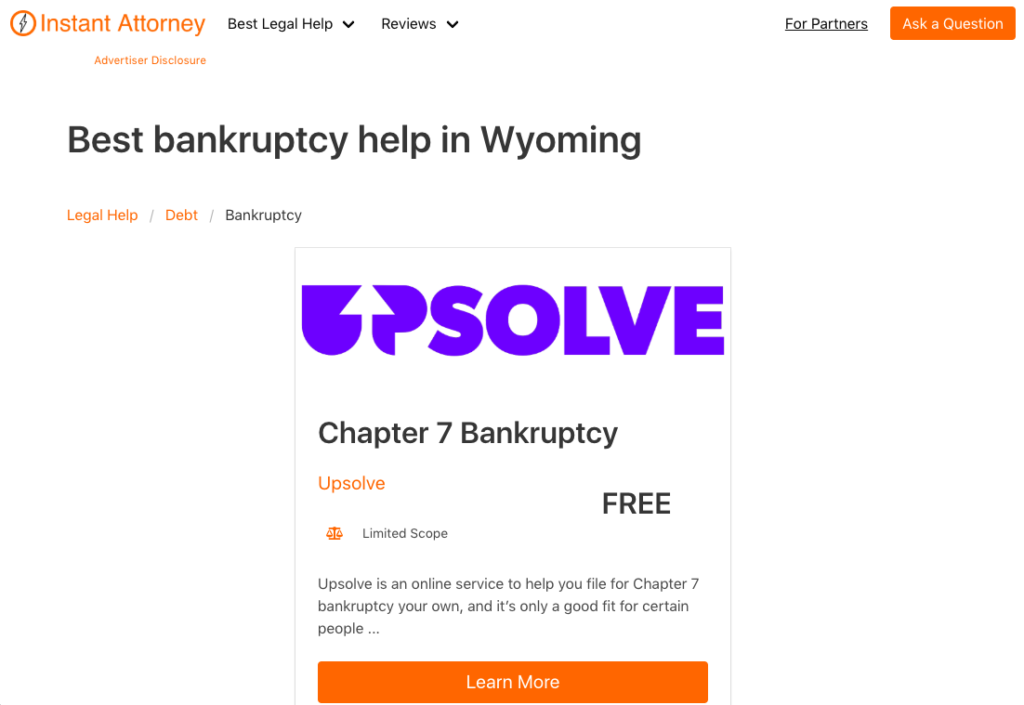
Another way we reduce friction for our users is through programmatic qualification. Users can see if they qualify for a particular legal resource in real-time, without spending hours searching individual websites or calling different organizations. Instead of using plain text in the HSDS eligibility field, we use Python code. This code is run in a special Docassemble interview called the Eligibility Engine that allows users to see if they qualify for a particular legal resource. You can give it a test drive by clicking here and selecting “Qualify Now”.
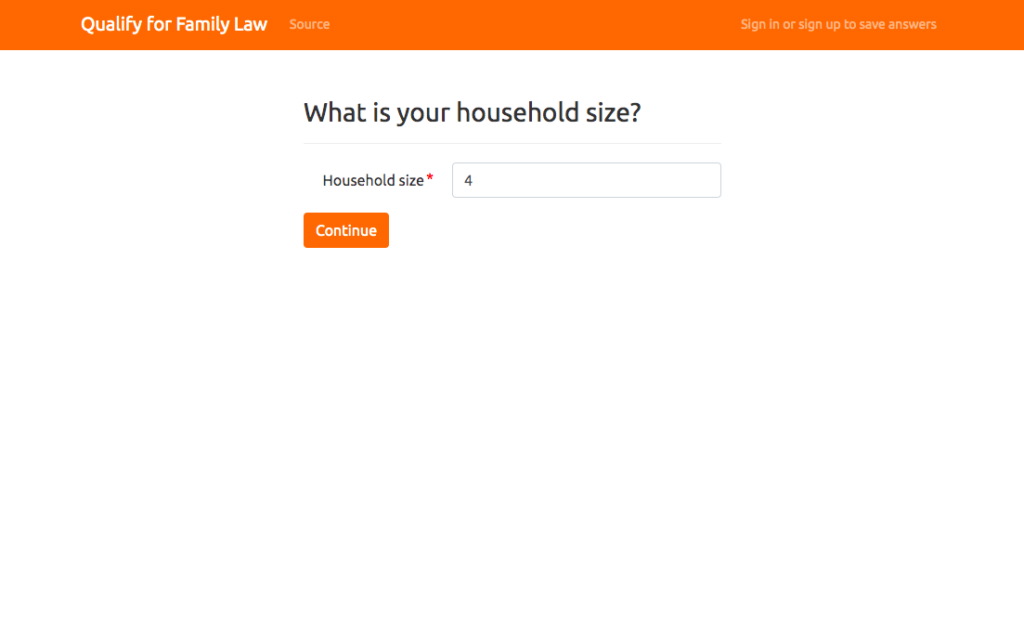
Partner Facing
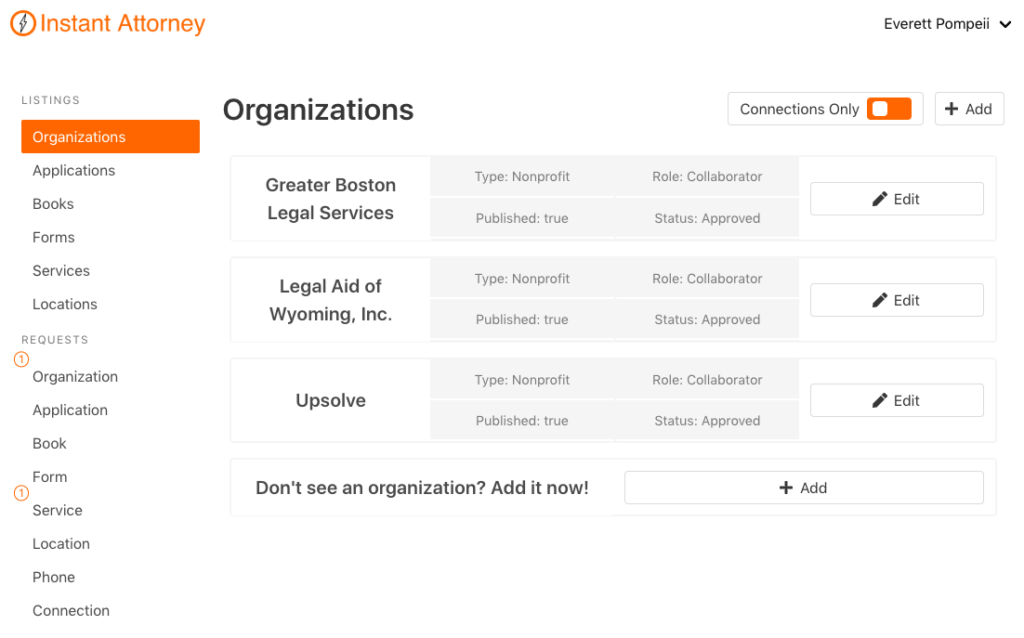
The Partner facing side of Instant Attorney, called the Hub, is a collaborative, headless content management system (CMS). Partners are vetted individuals who can add, update, and maintain listings for both their and others’ legal resources. We say the Hub is “collaborative” because it’s a Closed Wiki. Listings on the site can only be created or edited by other Partners. In contrast, sites like Wikipedia are Open Wikis, where anyone can make changes to the content. General public users can see listings on Instant Attorney, but they can’t update listings or participate in community discussion like Partners can.
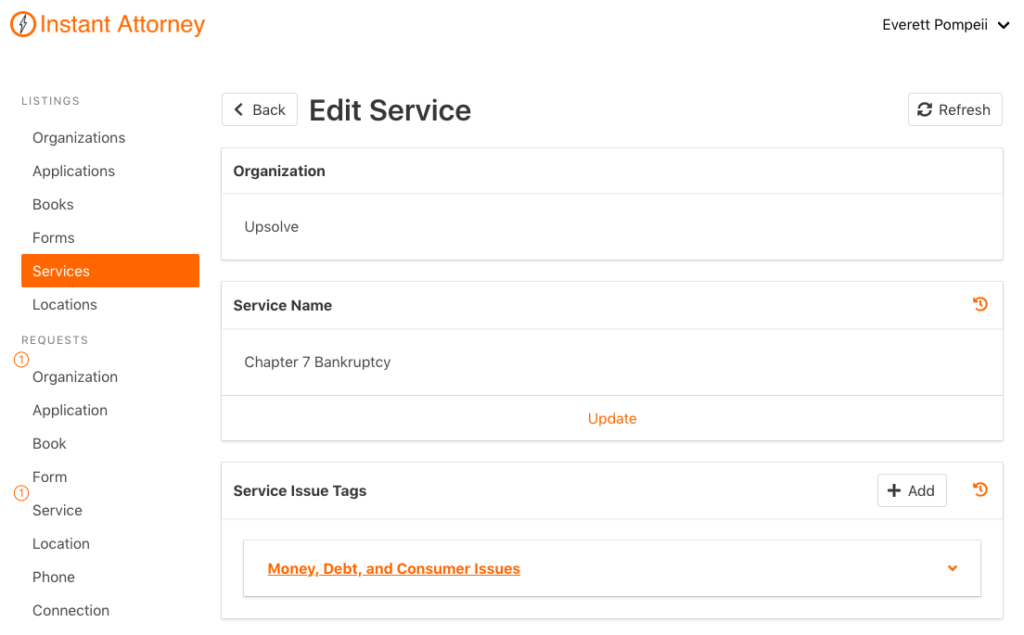
As a headless CMS, the Hub was built from the ground up to be API-first. It has a public RESTful API based on the Human Service Data API Suite (HSDA), which allows for querying and retrieving legal resources listed on Instant Attorney. All of these listings are licensed under the Creative Commons Attribution-NonCommercial-ShareAlike 4.0 License (CC BY-NC-SA 4.0), and the eligibility source code is available under the GNU Affero General Public License Version 3.0.
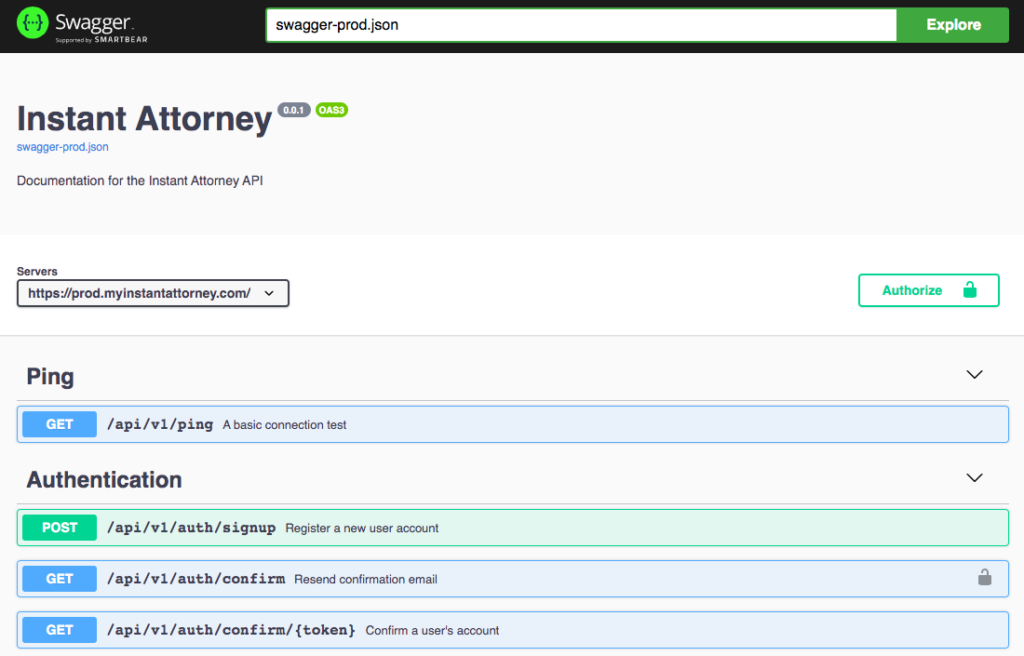
From practicing attorneys and startup founders to legal aid advocates and court clerks, nearly all are welcome to apply to become Partners. There are only two core requirements to becoming (and staying) a Partner: you share our mission to expand Access to Justice, and you treat other Partners with respect–especially when you disagree. If you would like to checkout the Hub, we encourage you to apply to become a Partner. And if you have any questions, please don’t hesitate to reach out!
OpenReferral and its community has been invaluable for getting Instant Attorney designed and off the ground. If you have any questions about the site or if you think our listings would be useful for your own project, please reach out!
Everett Pompeii
Sources:

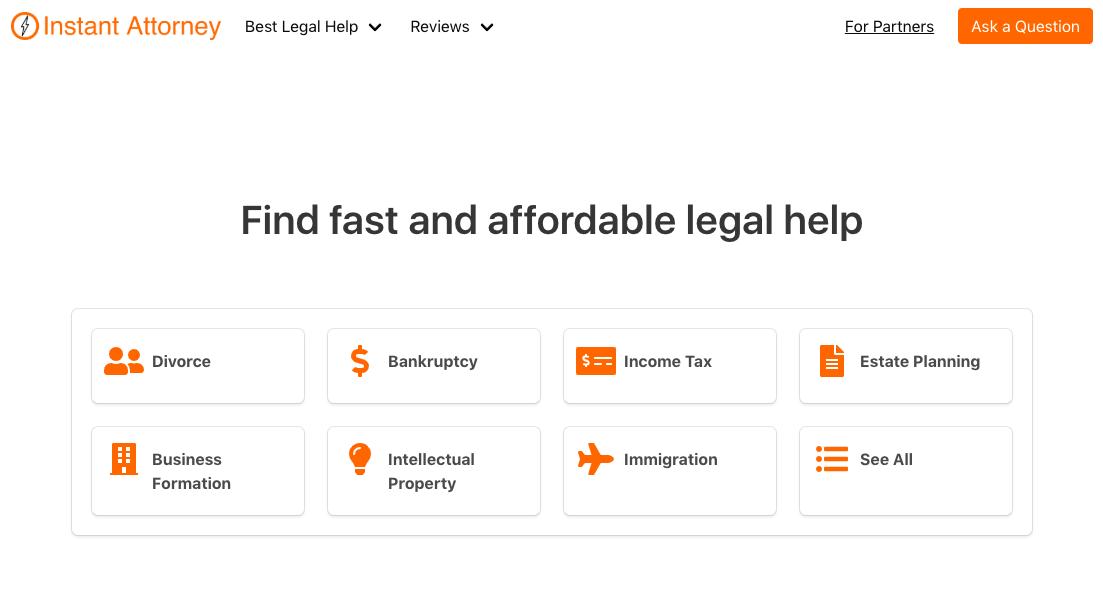
Leave a Reply